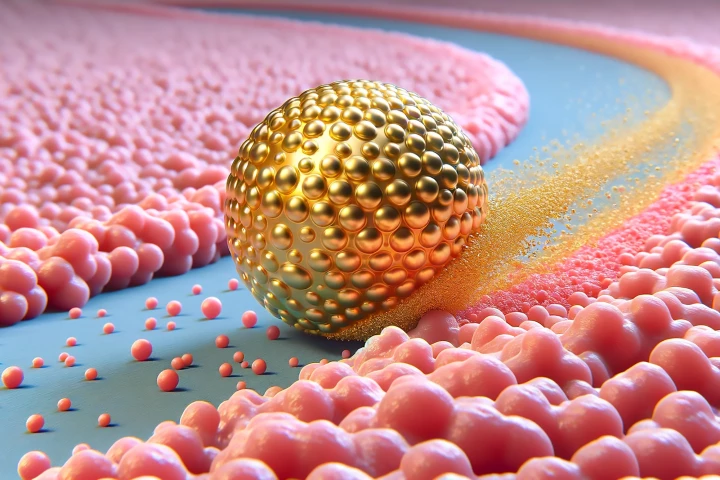Molecules
-
After a century of false starts, scientists believe they have found a way to make cells burn more energy without the dangerous side effects – and it could be a breakthrough that reshapes weight-loss and anti-aging medicine as we know it.
-
After two decades in the making, scientists have cracked the code on a drug that can repair DNA, setting the scene for a new class of therapeutics that can fix tissue damage that occurs through heart attack, inflammatory disease and other conditions.
-
Scientists have developed a nasal 'molecular shield' that disarms pollen, blocking allergic reactions fast without the use of drugs. This non-invasive method to effectively silence hay fever could be a game changer for around 81 million Americans.
-
A team of chemists has developed a new type of magnetic molecule that could be the key to storing vast amounts of data on absolutely miniscule drives. That could be huge for data centers in the future.
-
Dr. Frankenstein might not have needed a lightning bolt to bring his monster to life after all. A new study from Stanford suggests that life might have been kickstarted by constant zaps from “microlightning” between water droplets.
-
After screening 20,000 protein-encoding genes in the human body, Stanford researchers have identified a naturally occurring molecule that works like semaglutide, most popularly known as Ozempic, to put the brakes on appetite and weight gain.
-
Water ice is a far more complex substance than we might assume. Scientists have now created an exotic new form of ice in the lab, known as “plastic ice VII.” This strange version could exist naturally on other planets and moons in our solar system.
-
Scientists have discovered the potential existence of a bizarre new molecule related to water. Dubbed “aquodiium,” this ion could form under extreme conditions and may explain some of the weirdness of our solar system’s ice giant planets.
-
Imagine a world in which we never catch the flu, have no need for vaccines and can wipe out the virus if an infection has taken hold. A super-effective molecule that stops influenza from even entering our bodies stands to revolutionize how we treat flu.
-
The body uses protein-based molecular motors to perform functions essential to life. Now, researchers have created ‘The Lawnmower,’ the first synthetic motor that propels itself by harnessing the energy it creates as it cuts through fields of proteins.
-
White blood cell numbers can be cut by health conditions or treatments like chemotherapy. Yale scientists have now discovered a molecule that can be given to quickly boost their numbers back up, to help fight off infections without antibiotics.
-
Scientists have demonstrated an intriguing new technique to treat cancer – “molecular jackhammers” that latch onto cancer cells, then vibrate vigorously to kill them when activated by infrared light.
Load More











